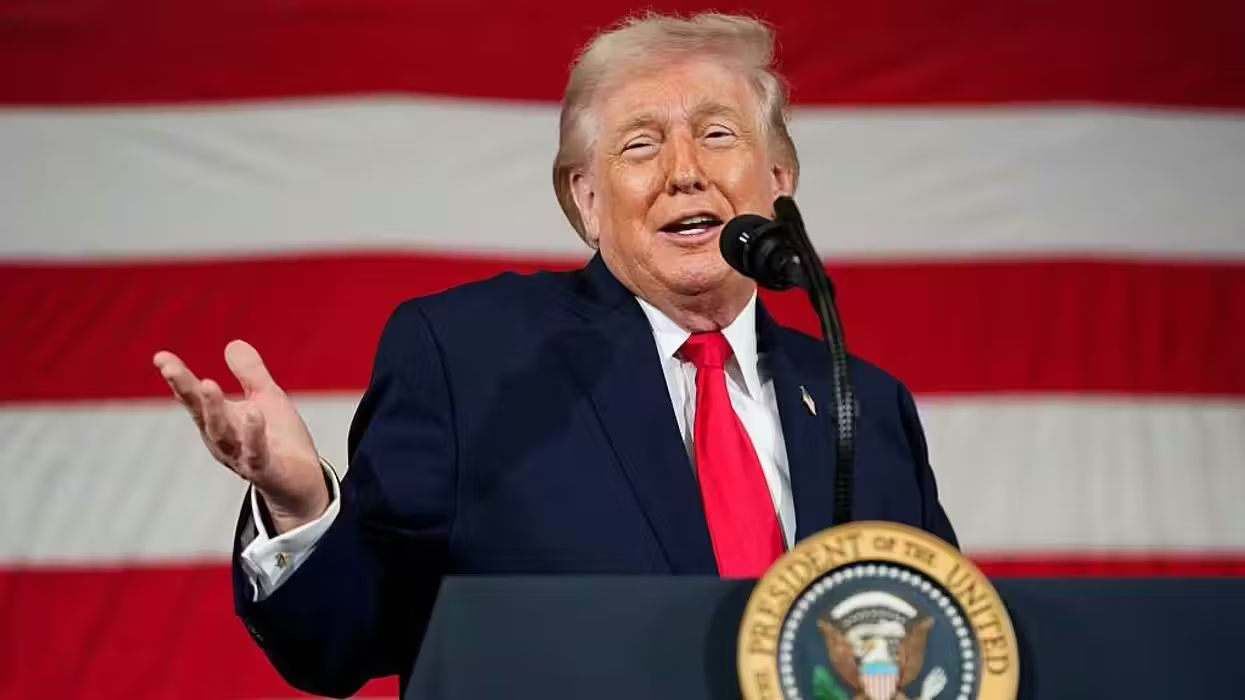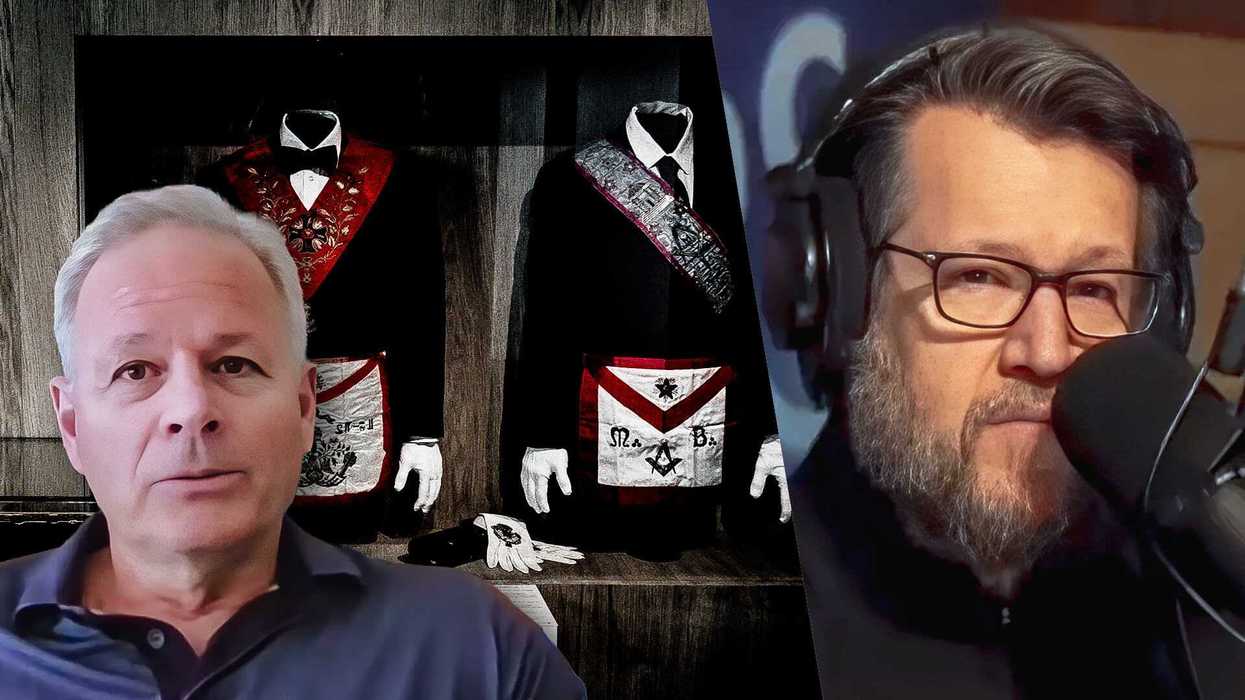© 2026 Blaze Media LLC. All rights reserved.
"Nobody is threatening the national motto."
 On Tuesday, the U.S. House of Representatives passed a non-binding resolution reaffirming "In God We Trust" as the national motto.
On Tuesday, the U.S. House of Representatives passed a non-binding resolution reaffirming "In God We Trust" as the national motto.
For those in America who believe that faith and religion are under attack, this was likely a welcome development. Others, though, criticized the vote at a waste of Congressional time.
The measure, sponsored by Rep. Randy Forbes (R-VA), supports and encourages the motto's display in all public schools and government buildings. It was approved 396-9, with 2 abstentions. With 91 percent of representatives voting in favor of the measure, it's intriguing to look at the 2 percent who voted against it.
GovTrack.us provides the information on who voted "no" in the graphic, below:

As you can see from the image, eight of those voting "nay" are Democrats, with one Republican rejecting the "In God We Trust" motto vote. Keith Ellison (D-MN) and Melvin Watt (D-NC) voted "present," while numerous others, including GOP presidential candidate Michele Bachmann, were not there to cast a vote.
Forbes said the resolution was needed because President Barack Obama had once called "E pluribus unum" the national motto, and the Latin phrase meaning "from many one" was engraved in the new Capitol Visitors Center until Congress ordered that it be corrected.
Watch the president make this statement, below:
Rep. Trent Franks (R-AZ) joined Forbes, among 395 others, in supporting the measure:
But not everyone saw Congress' handling of this as time well spent. Rep. Jerrold Nadler (D-NY), who voted "nay," called the resolution a meaningless distraction from the nation's real problems.
"Nobody is threatening the national motto," he said. Considering past efforts to have the motto removed, though, Nadler's comments aren't entirely accurate. Still, there's no evidence that Obama, the target of Forbes' comments, is attempting to endorse such a change.
Rep. Bobby Scott (D-VA), shares these feelings and claims that the nation has bigger problems, including the economy, failing schools and poverty. "Instead of facing these challenges and creating jobs to help American people make sure they have a roof over their head and food on their table, we are debating whether or not to affirm and proliferate a motto that was adopted in 1956 and is under no threat of attack," Scott said.
Russia Today apparently agreed wholeheartedly with the Democrats' sentiments on the matter:
Amash, the sole Republican to side with Democrats on the matter, admitted that he believes it's appropriate to display the motto on public property "in some circumstances," but that "there is no need to push for the phrase to be on all federal, state, and local buildings."
"The fear that unless 'In God We Trust' is displayed throughout the government, Americans will somehow lose their faith in God, is a dim view of the profound religious convictions many citizens have," he continued. "Trying to score political points with unnecessary resolutions should not be Congress's priority."
"In God We Trust" first appeared on U.S. coins during the Civil War in 1864. It officially became the national motto in 1956 and began appearing on paper currency the following year.
The Associated Press contributed to this report.
Want to leave a tip?
We answer to you. Help keep our content free of advertisers and big tech censorship by leaving a tip today.
Want to join the conversation?
Already a subscriber?
Billy Hallowell is a digital TV host and interviewer for Faithwire and CBN News and the co-host of CBN’s "Quick Start Podcast."
Billy Hallowell
Billy Hallowell is a digital TV host and interviewer for Faithwire and CBN News and the co-host of CBN’s "Quick Start Podcast."
more stories
Sign up for the Blaze newsletter
By signing up, you agree to our Privacy Policy and Terms of Use, and agree to receive content that may sometimes include advertisements. You may opt out at any time.
Related Content
© 2026 Blaze Media LLC. All rights reserved.
Get the stories that matter most delivered directly to your inbox.
By signing up, you agree to our Privacy Policy and Terms of Use, and agree to receive content that may sometimes include advertisements. You may opt out at any time.






